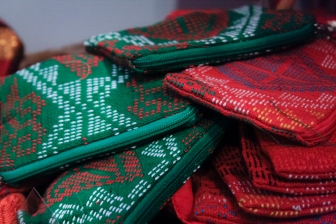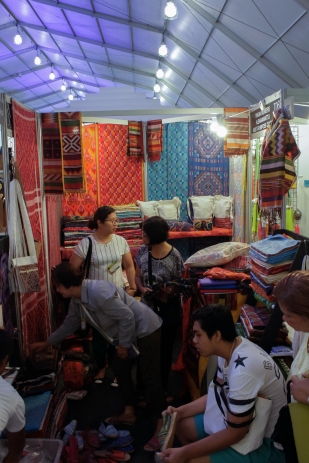
The Department of Trade and Industry (DTI) recently staged Slingshot Philippines 2016 at the Philippine Trade Training Center (PTTC) in Pasay City, kicking off a two-day national summit on startups and innovation revolving around the theme, “Accelerating the Innovation Economy.”
The event kicked off national consultations for the crafting of policies and programs to develop a new breed of innovative enterprises, covering the fields of agriculture, biotechnology, electronics, and digital startups, among others.
The two-day summit gathered together like-minded trailblazers under one roof: innovators with unique ideas for the community, investors who fund startup ideas, and policymakers who can provide an enabling business environment.
Around 50 speakers and panelists spoke on issues concerning funding, the current status and the future of Philippine startups, and strategies towards a Philippine innovation economy before 577 conference delegates. These delegates attended the national summit to actively take part in a government-initiated platform for public dialogue and partnership that will help boost the development of Philippine startups for a robust innovation economy.
There were also breakout sessions that covered topics on mentoring and coaching, programs for startups and innovators, and business development strategies for startups.

“Changing the ecosystem and putting in place policies responsive to the needs of the innovativion economy will not happen overnight. However, close collaboration of the government and key players will enable the Philippines to foster the desired new breed of business more quickly and efficiently. We want the next big tech startup to come from the Philippines,” said Trade Secretary Adrian Cristobal, Jr.
Secretary Cristobal is a steadfast advocate of MSMEs as an integral part of the country’s pursuit towards regional economic integration. He said the DTI had already started implementing programs such as Slingshot to help overcome the hindrances that constrain the growth of MSMEs and provide startups and innovative businesses an environment that will nurture their capabilities.
- In 2015, the Philippine government and startup community unveiled a roadmap which will serve as a framework in building a thriving ecosystem in the next few years. From a hundred, the country targets to have 500 startups with a total valuation of USD2 billion by 2020. This roadmap will also be used as the basis for Senator Paolo “Bam” Aquino IV’s Startup Bill set to be filed at the 17th Congress in July. This proposed policy will exempt startup entrepreneurs from paying taxes in their first two years, enabling an inclusive growth to their budding business.

Karla Legasi of the Department of Science and Technology-Information and Communications Technology (DOST-ICT) talks about programs for startups during a breakout session. (Photos by Jasfrey Carandang/CITEM)
Senator Aquino has been the forerunner of six startup-friendly policies that support the innovation community. Among these are the Go Negosyo Act (RA 10644) which initiates the establishment of ‘Negosyo Centers’ that create linkages to bigger markets and financing as well as provide jobs and livelihood to people, the Microfinance NGOs Act (RA 10693) which supports the groups that guide and empower micro entreprenuers, and the Youth Entrepreneurship & Financial Literacy Act (RA 10679) which builds a culture of entrepreneurship as an alternative solution to unemployment and underemployment.
“Why (support) MSMEs? Because we must. Our MSME sector is at the forefront of pushing the growth of the Philippines,” said Senator Paolo “Bam” Aquino IV, chair of the Senate Committee on Trade, Commerce and Entrepreneurship.
For her part, Trade Undersecretary Nora Terrado of the Industry Promotions Group (IPG) commended the local economy’s unyielding growth despite the many challenges the country faces with the global economic slowdown.
“We have gained momentum, but we can do more. We realized from our dialogues with the private sector that our country can benefit from a far-reaching and scalable innovation within a well-planned, well-organized government supported frameworks,” said Undersecretary Terrado.
Over the past few years, the Philippine economy has shown a promising ground for the startup community. In 2015, the country jumped 83rd in the Global Innovation Index, 17 notches higher from its previous rank in 2014. Bloomberg Businessweek also revealed that the Philippines’ ranked sixth among the top countries where talents are being sourced.
Slingshot Philippines 2016 is the direct offshoot of Slingshot Manila 2015, the official startup and innovation event for the Philippines’ hosting of the Asia Pacific Economic Cooperation (APEC) organized by the DTI, in partnership with the Department of Science and Technology (DOST) and other key industry stakeholders. (With reports from KSGuerzon)













